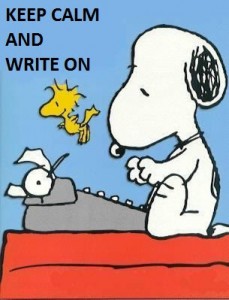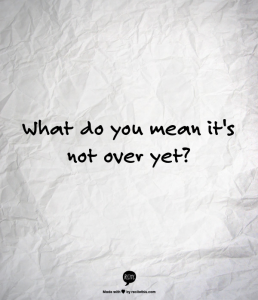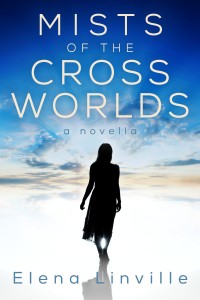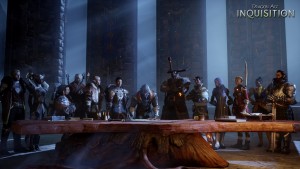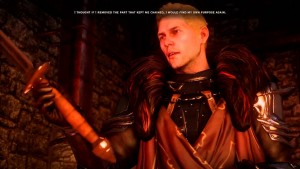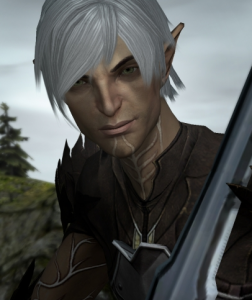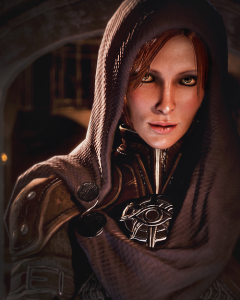Writing a first draft, or even beating it into submission editing it afterwards isn’t always sunshine and daisies. There are days when you feel like doing anything BUT sitting down to write. Heck, there are days when I’d rather clean the entire house from top to bottom and do the dishes (by hand) rather than forcing words onto the page.
All of the writers I talked to agree that establishing a routine and sticking to it helps a lot when you have one of those days. And a routine doesn’t only mean pick a time dedicated to writing every day and stick to it, though that’s a very useful advice. There are other elements that incite you to pick up the pen (or put fingers to the keyboard) and write. So I thought to make a list of the little things that put me in the mood or motivate me to get on with my writing.
1. The right pen and a stack of recycled paper.
I know a lot of people chose to type their first draft directly on the computer, and I must admit that it certainly is faster than writing it by hand. I do that when I need to write a lot of words fast, like during NaNoWriMo, when I have to meet my quota of 1667 words per day. When I’m not in such a hurry however, I prefer to write the old fashioned way – by hand.
And while I’m not very particular about the paper I use, preferring to recycle printed pages that would have otherwise gone into the trash at work, I am VERY particular about the type of pen I use. I have tried many pens in the past year and I have arrived to the conclusion that the Pilot G-2 gel pen is the best suited for my needs. It glides over the paper almost effortlessly, and my hand doesn’t hurt so much even after a long writing session. Oh, and it has to be blue ink. No other color will do.
I know that my method is slower than simply typing on the computer directly, but I find that it lets me concentrate better on what I want to say. Also, I go through the first round of edits while I type everything into my Scrivener file at the end of the day.
2. Background noise is good, but music is distracting.
I can write in a crowded coffee shop or restaurant, in a park, in the waiting line at the post office or even in my car. The background noise of conversations doesn’t distract me. In fact, I find it rather stimulating. Which is good, considering that I often use my lunch hour to put 300-400 words on the page. At first, waiters in the local restaurants used to give me funny looks when I showed up with my pen and plastic folder full of loose papers, but now they got used to the crazy lady scribbling furiously in a corner during lunch.
I can also write with the TV on, as long as my husband refrains from poking me every 5 minutes and wanting to discuss the series he’s watching. And my patience grows very short indeed when he does that. I’m sorry, dearest. I transform into a fire breathing dragon all of a sudden and you have no idea why. And it could easily be avoided if you just let me be for an hour or so!
I know a lot of writers work with their headphones on and even compile entire playlists with their “writing” music. I discover however, that I can’t write with music on, especially if it’s music that I like or that has words in it. I end up either listening to it or singing along instead of concentrating on writing. I don’t know why background noise is fine, but music isn’t.
3. Using visual media for inspiration.
I have a pretty good idea of what my characters look like when I sit down to write about them, but just before NaNoWriMo 2014, I discovered that Pinterest could be a nifty little tool for gathering all the visual information I need to boots my creativity. I created several boards for all my ongoing projects and spent several days happily hunting around the Internet for pictures of people that looked more or less like my characters or places that I could use in my stories.
The advantage of having these boards is that I can always look at them when I feel sluggish and it will inevitably push me to write. Plus, it’s harder to get the description of a character wrong if I’m staring at his picture. If you are interested, you can visit my Pinterest page and see what I have been up to.
The downside of Pinterest is that it’s a huge time sink. No matter what you start looking for, you always end up going on a tangent. And the next thing you know, two hours have gone by and you have a bunch of Dragon Age pictures in your dedicated board and nothing about the Norse mythology you had wanted to research…
So these are the little things that help me get in the writing mood even when I don’t feel like writing. What about you, dear readers? What helps you or hinters you? I’d love to hear from you!






